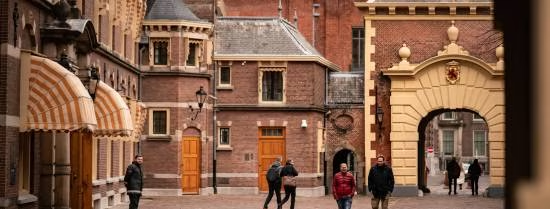
What are we researching?
We study how governments try to solve complex social issues. In our network society, which is diverse and fragmented, this is not easy since governmental bodies are dependent on other parties, such as housing corporations, schools and welfare organisations. Our research, therefore, focuses on multidisciplinary policy questions, for example, in the areas of climate, circular economy, vitality and infrastructure.
Why are we doing this research?
In our network society, different views on social issues and their desired solutions quickly emerge. There is no standard recipe for bridging the various perspectives and the underlying interests. However, how best to tackle a complex task is of great social importance and requires a thorough analysis per problem.
How are we doing this research?
Our explicit governance perspective distinguishes our research. We focus on the complexity of the issue, analyze the different aspects of the problem and the actors involved, and propose acceptable solutions to multiple parties.
From the wide variety of research methods we know, we choose the method that best suits the nature of the issue that is investigated
How does our research make an impact?
Our research works together with municipalities, (central) government departments, private parties, and civil society organisations.
For example, in cooperation with the Directorate-General for Public Works and Water Management and the construction industry, we studied the effectiveness of public-private partnership projects. Thanks in part to our scientific reflection, this research provided a good picture of how social parties experience administrative and social issues in practice.
We conduct research that is both practically meaningful and of high quality. Our research meets strict international scientific standards and is independent.
We communicate the results of our research both in scientific forums (articles) and in practical forums (media, blogs, discussion forums, journals, contributions in council chambers, community centres and interviews with stakeholders).
